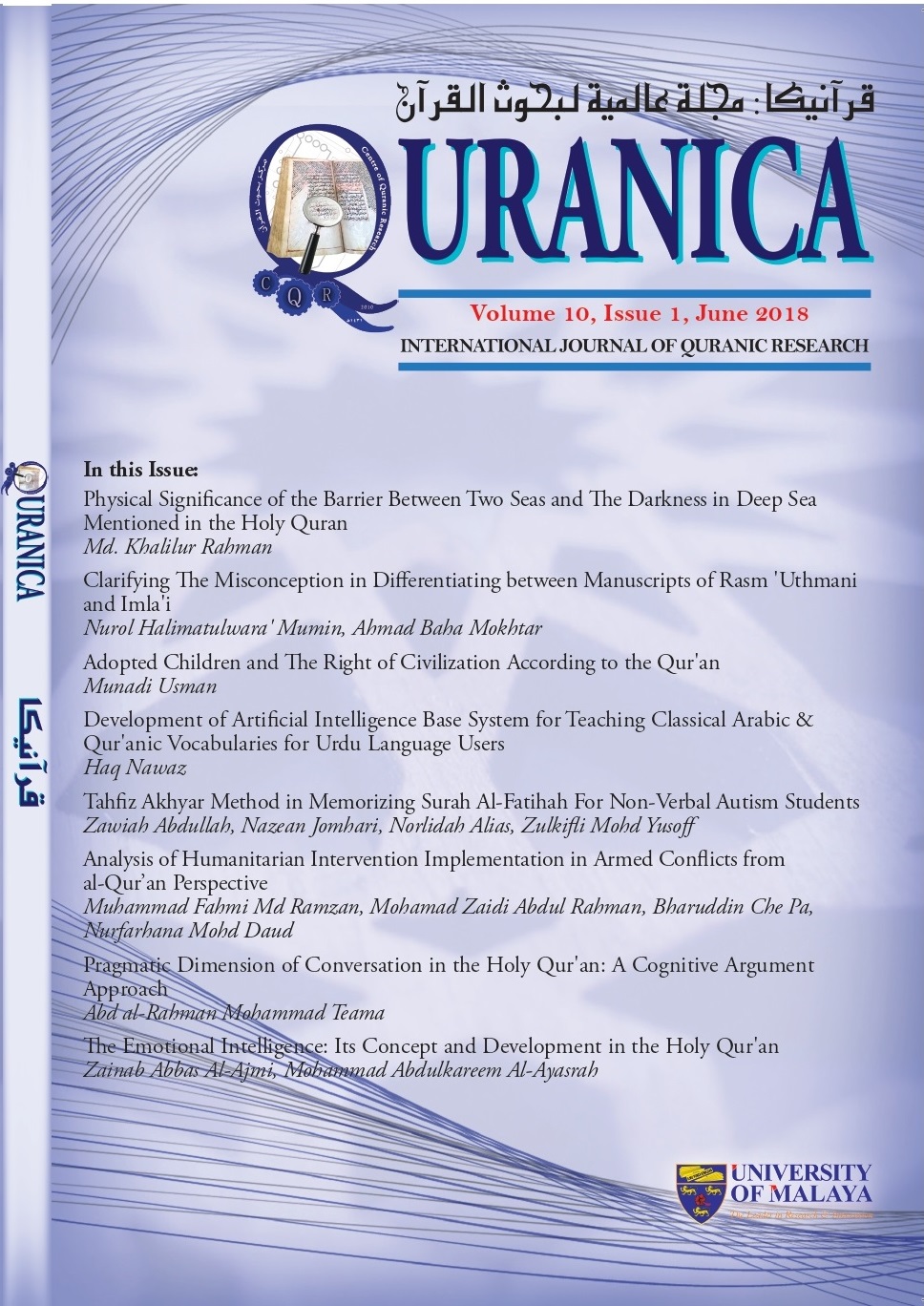Development of Artificial Intelligence Base System for Teaching Classical Arabic & Qur'anic Vocabularies for Urdu Language Users
Main Article Content
Abstract
“Classical Arabic” or “Fusha Arabic” is very important because the Holy Qur‘an was revealed in Classical Arabic. The Holy Qur‘an describes itself as an “Arabic Qur‘an” (Surah Yusuf:2). Secondly, it is the language of the Last and Final Prophet and Messenger of Allah Muhammad (s.a.w) and core Islamic literature is written in Classical Arabic. Arabic is one of the Semitic languages in which different variations of verbs, nouns can be obtained by prefixing or suffixing different characters in root word. Information technology (IT) has a vital role in modern era, learning process has undergone great changes and teaching institutes are using Virtual Learning Systems for teaching purpose. The existing systems for the Arabic language do not meet these modern changes. There is need to improve the state of the art by using advanced techniques to fill this gap. This paper focuses on development of teaching system of Arabic conjugations for non-Arabs; initially it is designed for the Urdu users, with extensions to other languages also planned. This system is developed using techniques from Natural Language Processing (NLP) and Artificial Intelligence (AI). This system till now covers the teaching of “علم الصرف” components. Towards this end, different algorithms have been designed that generate conjugations from the given root words and can additionally generate Urdu translations. The system also generates the runtime examinations as per learning syllabus of the student, and also recommends the weak areas of student where improvement is required.
Downloads
Article Details
Disclaimer
QURANICA makes every effort to ensure the accuracy of all its contents. However, opinions, discussions, views and recommendations are expressed in this journal do not necessarily reflect the official policy of QURANICA or views of its editors or publishers. Therefore, QURANICA and its publishers will not be liable for any controversy may be arisen. The journal reserves the right, at its sole discretion, to change its terms and conditions of publications.
Copyright
It is a condition of publication that manuscript submitted to the journal have not been published, accepted for publication, nor simultaneously submitted for publication elsewhere. By submitting a manuscript, the author(s) agrees that copyright for the article is transferred to the publisher, if and when the manuscript is accepted for publication.
